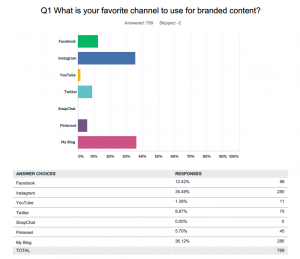— July 29, 2019
It’s great that you’ve made that jump on the bandwagon and set up your blog website. But, a reality check is around the corner that tells you this is only 30% of the work. The main problem starts when you need to attract traffic onto your website and sustain it. This is where various marketing strategies come into play.
So have you planned out your content calendar? Are you sure it is enough to pull the desired traffic?
Generating traffic on your website is not always about the content it offers. A lot of the work goes into marketing it properly and creating effective strategies to pull web traffic from higher-ranked websites. So, yes, people love to read… so long as they gain something out of it.
Read on and fret no more! We will be covering some of the simple and effective ways of generating, redirecting, sustaining traffic on your own website.
1. Start Guest Blogging

StartupStockPhotos / Pixabay
You’ve heard of guest blogging before? Here’s a one-liner that explains guest posting in a jiffy. Guest posting is the creation and publication of promotional content as blog posts on third-party websites.
So, What’s the point here?
Yes, exactly! You’re probably asking why do I want to guest post when I could be creating content on my own website? The answer is simple! Because you want to establish your authority on the web as you create your own content. Or perhaps, you’ve already started creating content on your own blog, but aren’t getting enough traffic.
To break it down, there are three main reasons to be guest posting.
- Position oneself as a thought leader within the industry
- Get traffic back to your website
- Building on backlinking for your website
For the first and second reason, the objective here is to engage with the community and build on size. So your influence is proportionally increasing with your audience’s engagement.
A few things to remember when planning and strategizing guest posts. Let’s start from scratch when it comes to knowing what to Google. Try searching for keywords like “submit a guest post”, “accepting guest posts”, and “write for us”. What makes this search even more specific is using these keywords with your business niche (example: dogfood write for us)These searches are bound to land you on blogs that allow guest posting and have an established name.
The second part is getting familiar with a few names in the industry. For starters, search for blog posts with names like Neil Patel, Gregory Ciotti, Danny Iny, Leo Widrich, and Marcus Sheridan. These are well-known bloggers who have contributed to the topic of guest posting among many other topics.
Here’s a quick tip: Instead of searching for individual blogs that allow guest posting, search for guest post lists. It would save time in research. (Eg: 500 Places to Syndicate Content)
Creating and publishing guest posts isn’t your end goal. The point of all this effort is to bring traffic back to your website in the first place. So, always remember that end goal when creating a plan for your blog post content.
I’m feeling generous today. So, here’s another tip!
Tip#2: If you already have friend(s) who contributes to guest posting websites, request them to introduce you to the community in their post.
This way, you’ll find yourself on the fast lane to building engagements and interacting with other members of the community. Blog owners who have established a good level of engagement with their audience usually have a social media profile. This helps in connecting with the blog owner and presents an avenue for new guest bloggers to break the ice.
Thanks, so should I start posting now?
Hold up!
You can’t just interact with a guest blog owner right away!
You need a pitch! In fact, you need to prepare for a pitch!
Pitching yourself as a Guest Blogger
Before you start talking about your business, its niche, and how you think this blog will benefit you, step out of your shoes for a moment. Assuming the owner of the blog has daily engagements and hopes to reply to most people, you might end up in the SPAM folder. So try making your subject line attention-grabbing and as authentic as it can be.
Here are a few things you need to know before you make the pitch.
- Get to know the general topics of the guest blog.
- Understand the subject depth and level of knowledge the audience has. This means if they are new to your proposed topics, or they already have in-depth knowledge about the matter.
- Scope of your audience’s tone, whether it’s B2B or B2C.
- Analyze the type of posts with high engagement and shareability rate.
With these pointers out of the way, you’re now ready to write your pitch and introduce yourself to the blog owner. When you introduce yourself, make sure you mention that you’re looking to write guest posts so the blog owners can find you.
2. Start Creating Content on Your Own Website
Now that you’ve started to pull traffic onto your website, there are few things to. For starters, you must focus on building backlinks to keep the traffic on your website consistent. The latest SEO practices by Google, involve analyzing the backlinks on one website to establish it’s ranking in search results.
Okay okay, I hear you. You’re probably wondering what if you can’t find an appropriate place to start guest posting? Well, you just can’t put in the hours to do research on content while also auditing popular blogs out there.
The solution?
Pick out keywords you want to people to search for and lead up to your site. Your brand/blog, in this case, must have alternate words that relate to your niche. This will help build your network so you can connect with people related to your industry.
You can now start focusing on creating content on your website to involve your readers, and keeping their engagements high. Make a content calendar according to a theme. Confused? Let’s break this down further to pinpoint the objectives you want to achieve.
Create Evergreen Content
Search for content themes that are evergreen so you can set your base. The content will remain regular and will keep the audience glued to your blog. When I talk about keeping your audience glued, it means that there is a key take away from every blog post that you publish on your blog.
Now you’re all set to start working on your blog post. Be sure to set days in your content calendar, where you’ll be working on guest posts to keep building on traffic and update yourself with the latest happenings of what other bloggers are writing about.
Target Keywords with High Search Volume
There are a number of tools (paid and free) available in the market for you to pick and analyze topics before writing about them. Since you’re still in your content planning phase, it would make sense to run legit analytics on your topic.
Keywords with higher search volumes get you more traffic when they are ranked. A higher search volume means too many people are using that keyword to search for something specific.
You can check out tools like ahref and KWfinder to dig some keywords which have higher search volume. Though higher search volume may vary industry-wise while searching you will get an idea of the best keywords you can target.
When you are picking the best keyword(s), keep a look at its difficulty (KD) because it’s hard to get higher ranking on keywords which have KD more than 40.
Wouldn’t it be nice if you cash-in a discount for a coffee/tea and a meal for every blog post you read?
Wait… that’s an idea!
3. Run Giveaway Contests

glorife / Pixabay
Imagine if you won a coffee mug for participating in a contest to just share a blog post on your social media. The effort here is no more than just clicking a link to share the article on Facebook. You can do the same on your blog, by giving away discount coupons and gifts to regular readers who invest their time in engaging with you.
People love giveaways and it can get costly to have a deal attached to every article. So you can mix it up by making this a customer acquisition strategy and posting these give away articles twice a month instead of every day! With a little bit of research, you can build some contacts and minimize the cost of these customer acquisition tactics.
4. Launch on Betalist, Kickstarter, and Product Hunt
Sometimes, it’s good to let the established community tow your website to get the gears rolling. Platforms like Betalist, Kickstarter, and Product Hunt are great places to steal some of the spotlights.
Betalist, Kickstarter and Product Hunt are platforms where readers can read an overview of upcoming internet startups, innovations in products, and crowdfunding opportunities, new startup ideas, and innovations in products are available. Details about the startup, the team behind the idea and a link to the business’s website to read more about the idea.
So, if you want to try and play big, you’ll have to step into the big arena. It’s good for marketing purposes as it generates traffic on your website and attracts more eyeballs to your website. Whether the feedback is negative or positive, it all depends on your business research and product niche.
But hey, you’ve probably heard of the phrase “When the going gets tough, the tough get going!”,
No, really that’s it!
You’re now ready to pull traffic to your website!
So, that’s a wrap!
Here’s what you take away from this article
- Guest blogging is important to pull traffic and connect with influential bloggers.
- Create a content calendar for the content you will be writing.
- Use free or paid content research tools to make your blog post rank better.
- Start creating content on your own website based on keyword search volume, and by picking evergreen topics and hold giveaway contests to promote audience engagement.
- Use Betalist, Kickstarter, and Product Hunt as platforms to generate traffic.
Business & Finance Articles on Business 2 Community
(43)
Report Post






